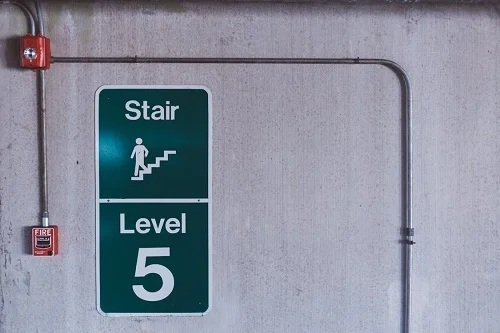Fire Protection Engineering is a specialized field dedicated to safeguarding lives and property from the devastating effects of fire. By applying scientific principles and engineering expertise, fire protection engineers design, develop, and implement systems and measures to prevent, detect, control, and mitigate fires.
What is Fire Protection Engineering?
Fire Protection Engineering is a multidisciplinary field that encompasses various aspects of fire safety. It involves the study of fire behavior, fire prevention, fire detection, and fire suppression systems. Fire protection engineers work closely with architects, builders, and other professionals to incorporate fire safety measures into the design and construction of buildings and structures.
Fire Protection Engineering vs. Fire Protection
While often used interchangeably, fire protection engineering and fire protection are distinct concepts. Fire protection is a broader term that encompasses all measures taken to prevent, detect, and control fires. Fire protection engineering is a specialized branch of engineering focused on the scientific and technical aspects of fire safety.
Careers in Fire Protection Engineering
A career in fire protection engineering offers a wide range of opportunities. Here are some common career paths:
- Consultant: Fire protection engineers can work as consultants, providing expert advice on fire safety to clients such as building owners, architects, and insurance companies.
- Fire Investigation: Some engineers specialize in fire investigation, determining the cause and origin of fires to prevent future incidents.
- Insurance: The insurance industry employs fire protection engineers to assess risks and develop fire prevention strategies.
- Research: Fire protection engineers can contribute to the research and development of new fire safety technologies and standards.
- System Manufacturers: Engineers may work for companies that manufacture fire protection systems, such as fire sprinklers and alarms.
What is a Fire Protection Engineer Responsible For?
Fire protection engineers have a critical role in ensuring public safety. Their responsibilities include:
- Conducting fire risk assessments to identify potential hazards.
- Designing and specifying fire protection systems, including fire sprinklers, alarms, and smoke detection systems.
- Developing evacuation plans and emergency procedures.
- Conducting fire inspections and testing to ensure compliance with fire safety regulations.
- Providing fire safety training to building occupants.
The Importance of Fire Protection Engineering
The work of fire protection engineers has a profound impact on society. By designing and implementing effective fire safety measures, they help to protect people and property from the devastating consequences of fire. The use of fire sprinklers, for example, has been proven to significantly reduce fire fatalities and property damage.
Challenges and Opportunities in Fire Protection Engineering
The field of fire protection engineering is constantly evolving in response to new challenges and technologies. As buildings become more complex and fire hazards change, engineers must stay updated on the latest research and developments. The increasing focus on sustainability and energy efficiency also presents new opportunities for fire protection engineers to develop innovative solutions.
Fire Protection Engineering and Emerging Technologies
The field of fire protection engineering is continually evolving in response to new technologies and challenges. Advancements in technology have led to innovative solutions for fire detection, suppression, and prevention.
Smart buildings and the Internet of Things (IoT) have opened new possibilities for fire protection. Sensors and detectors can be integrated into building systems to monitor conditions in real-time, allowing for early detection and rapid response. Additionally, fire suppression systems can be automated to activate based on specific parameters, such as smoke density or temperature.
Artificial intelligence (AI) is also making significant contributions to fire protection. AI-powered systems can analyze data from various sources to predict fire risks, optimize fire protection systems, and improve emergency response planning. For example, AI can be used to identify potential fire hazards through image analysis or to simulate fire behavior in different scenarios.
As technology continues to advance, fire protection engineers will play a crucial role in harnessing its potential to create safer and more resilient buildings and communities.
Fire Protection Engineering and Building Design
Fire protection engineering is intrinsically linked to the design and construction of buildings. A well-designed building incorporates fire safety measures from the ground up. This involves close collaboration between architects, engineers, and fire protection specialists.
Fire-resistant materials play a crucial role in slowing the spread of fire and protecting building occupants. These materials can be used for walls, floors, and ceilings. Additionally, building layout and compartmentalization are essential for containing fires and preventing their spread to other areas.
Another critical aspect is the design of escape routes. Fire protection engineers work to ensure that buildings have adequate exits, clearly marked escape paths, and emergency lighting. This helps people evacuate safely in case of a fire.
Ultimately, the integration of fire protection engineering principles into the building design process is essential for creating safe and resilient structures.
Fire protection engineering plays a vital role in creating a safer environment for everyone. By understanding the principles of fire behavior and prevention, engineers can develop effective strategies to protect lives and property.
To enhance fire safety, it is essential to invest in qualified fire protection engineers. Building owners and managers should prioritize fire safety in the design and operation of buildings. Additionally, public education and awareness about fire prevention are crucial for reducing the risk of fires.
By working together, fire protection engineers, building owners, and the public can create a safer future.






